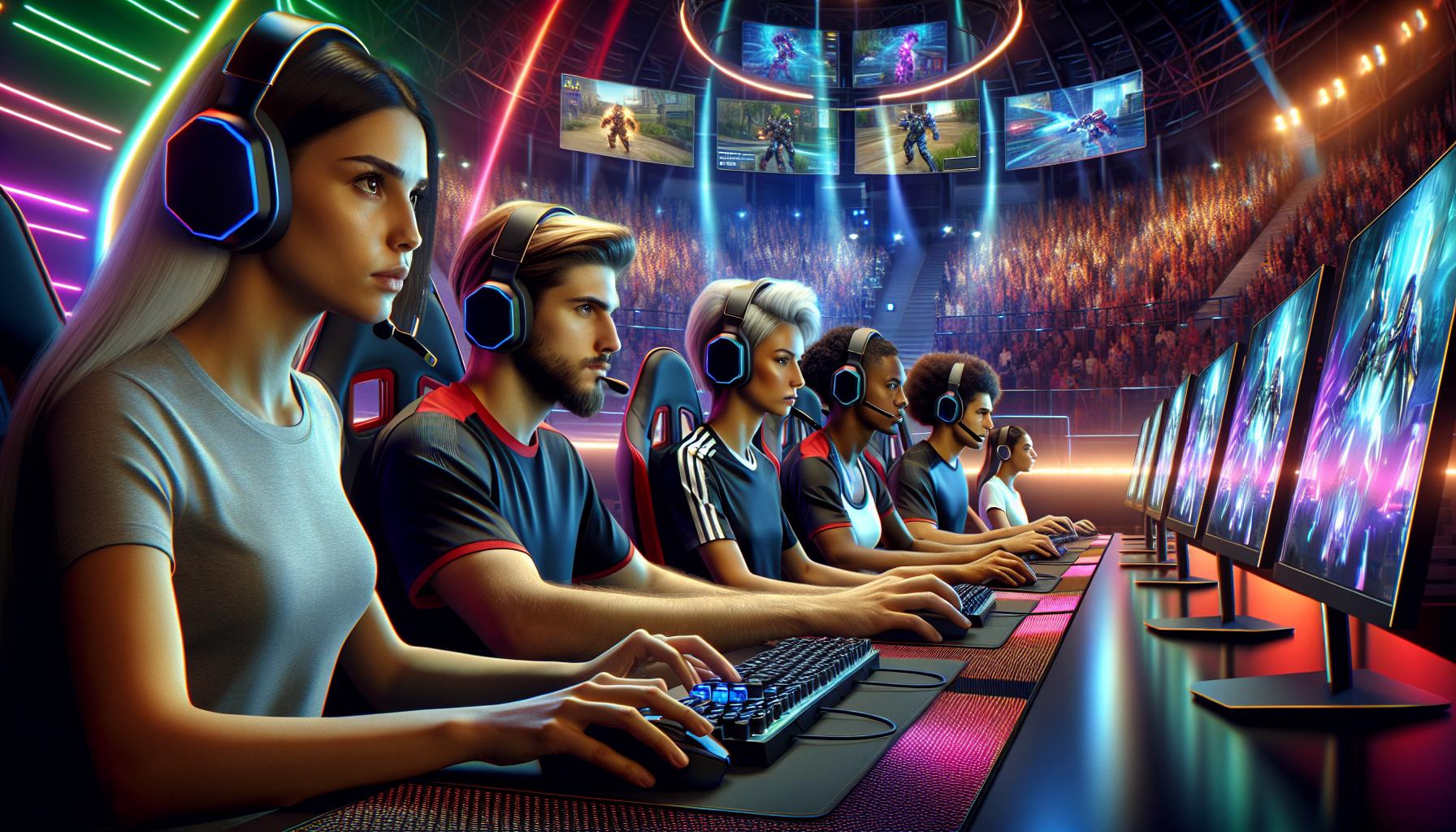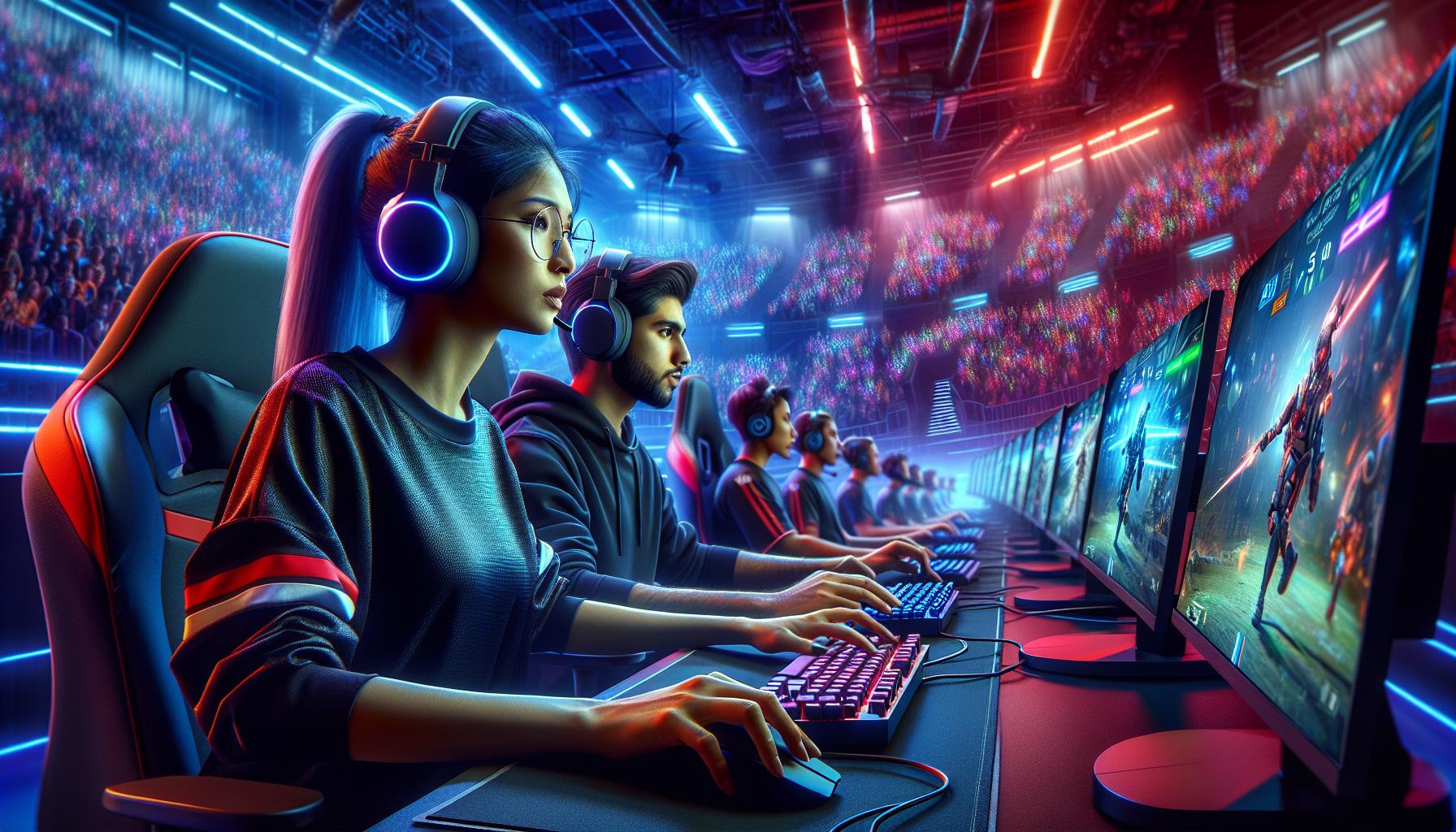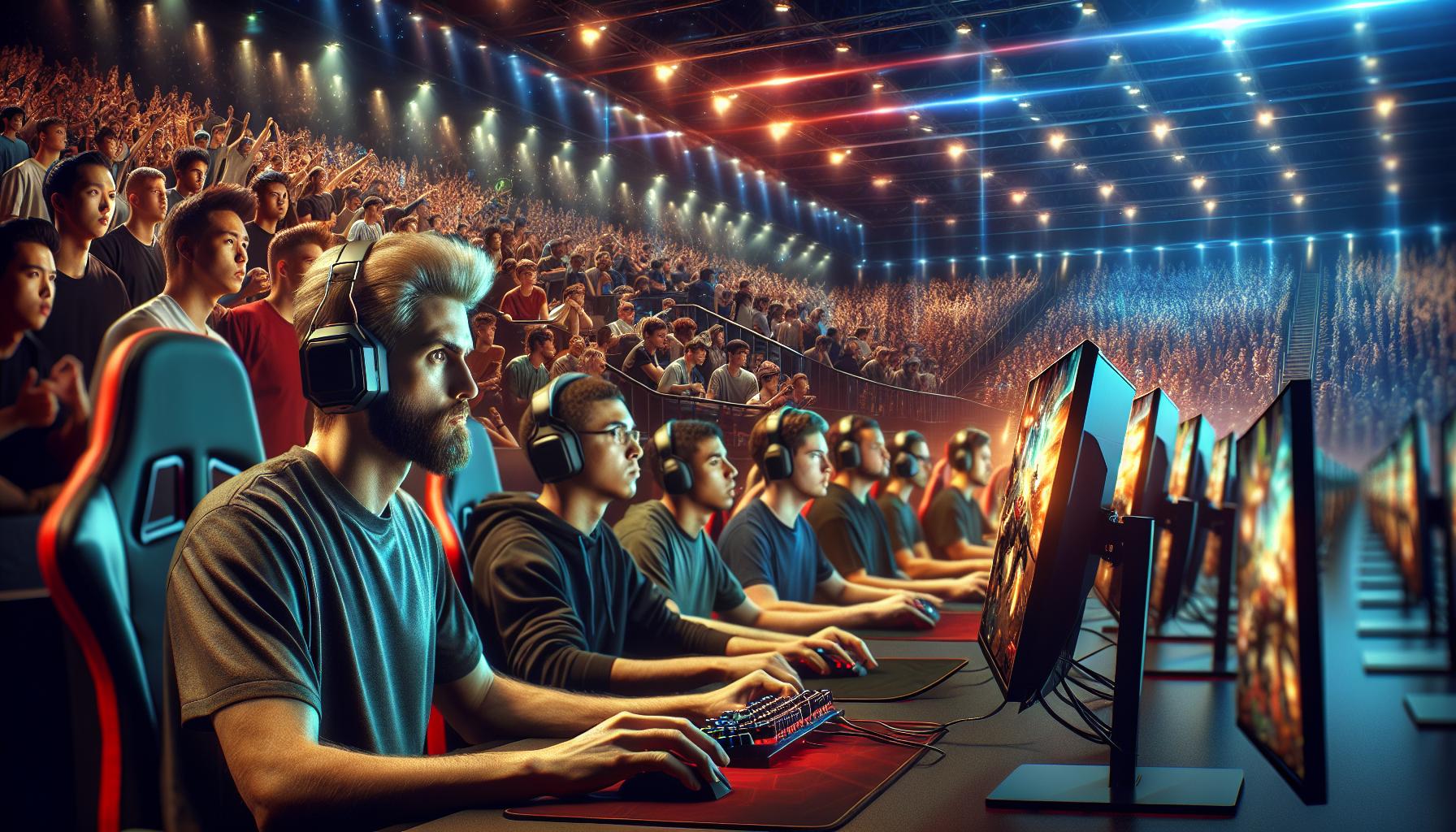The world of sports is evolving faster than a gamer hitting a power-up. With the rise of esports, it’s no surprise that the Olympic Games are jumping on the virtual bandwagon. Picture this: athletes trading their running shoes for gaming headsets, competing not just for gold medals but for digital glory.
Olympic Esports Games List
Esports represent a significant shift in the traditional sports landscape. The Olympic Games now feature esports as part of their events, which showcases the increasing acceptance of competitive gaming. Physical and digital competitions often blend, appealing to a broader audience and encompassing various interests.
Virtual competitions include popular games that resonate with a global fanbase. Titles like FIFA, League of Legends, and Rocket League have gained traction within the Olympic esports framework. Many countries actively participate, exemplifying the international appeal.
Collaborations with game developers and publishers anchor the integration of esports into the Olympic movement. These partnerships enhance credibility and improve the organization of events. Participation in these competitions often relies on well-structured formats and comprehensive rules.
Fan engagement plays a crucial role in the development of Olympic esports. Spectators embrace the excitement surrounding virtual matches, fostering a community spirit. The potential for esports to offer viewership comparable to traditional sports remains notable.
Inclusivity becomes a key focus of Olympic esports initiatives. By providing opportunities for diverse participants, the events aim to break barriers and attract a wider array of competitors. This approach underscores the commitment to represent various demographics on the Olympic stage.
The future of Olympic esports looks promising. As technology advances, so too does the potential for innovation in competitive gaming. Upcoming events are bound to showcase new titles, captivating audiences and pushing esports into mainstream recognition during the Olympic Games.
Popular Esports Included in the Games

Esports have captured global attention, with notable titles gaining recognition in the Olympic arena. Popular games resonate with diverse audiences and showcase the competitive nature of virtual sports.
Game Titles and Genres
Competitive titles include FIFA, known for its realistic soccer simulations. League of Legends delivers strategic gameplay in the multiplayer online battle arena genre. Rocket League combines soccer elements with rocket-powered cars, attracting fans worldwide. Another prominent title, Street Fighter, features thrilling one-on-one fighting matches. Each game offers distinct genres, ensuring a wide range of competitive experiences for players and spectators alike.
Developer Contributions
Game developers play a crucial role in shaping the esports landscape. Collaborations with the International Olympic Committee enhance event credibility and organization. Riot Games significantly contributed to the rise of esports through dedicated leagues and tournaments. EA Sports elevates FIFA with annual updates, attracting players and fans. Psyonix, the creator of Rocket League, supports community engagement through regular competitions. Each developer brings unique innovations that keep the esports ecosystem vibrant and appealing to a global audience.
Benefits of Esports in the Olympics

Esports in the Olympics brings various advantages that enhance the traditional sporting landscape.
Engaging a Younger Audience
Esports captivates younger viewers and participants. Many young people prefer digital entertainment over conventional sports. This engagement opens up opportunities for the Olympic Games to connect with this vital demographic. It also encourages youth to take an interest in athleticism, whether in gaming or traditional sports. Data from the International Olympic Committee shows that 70% of esports fans are under 35 years old, highlighting the potential to draw in a youthful crowd. By incorporating popular titles and fostering a competitive atmosphere, the Olympics attracts Gen Z and millennials. Increased interest in events can lead to greater viewership and participation for future games.
Promoting Inclusivity and Diversity
Inclusivity is a cornerstone of esports, reflecting diverse backgrounds and cultures. Through online competitions, participants from different countries can compete on an equal footing. This format supports gender diversity, allowing a wider range of players to showcase their skills. Games like FIFA and League of Legends already include diverse characters and experiences, broadening appeal. A study shows that around 20% of esports players identify as female, a significant figure in the gaming world. The Olympics can promote this diversity by highlighting a mix of players and fostering inclusive environments. By embracing this change, the Olympic movement positions itself as a pioneer in promoting representation.
Challenges Faced by Olympic Esports

Esports face several challenges within the Olympic framework. Key obstacles include balancing traditional sports and esports and addressing regulatory and technological issues.
Balancing Traditional Sports and Esports
Striking a balance between traditional sports and esports represents a significant challenge. Many sports organizations prioritize established events, which can overshadow emerging esports competitions. Adapting to the pace of change requires a fresh perspective on how both can coexist. Competing for attention, esports must demonstrate their value to Olympic traditions while respecting established norms. Finding common ground ensures that both traditional athletes and gamers receive equal recognition and support.
Regulatory and Technological Issues
Navigating regulatory and technological hurdles often complicates the integration of esports into the Olympics. Issues arise around licensing, player eligibility, and age restrictions, creating barriers for players and organizers. Technological infrastructure also needs constant updating to support the demands of esports competitions. Connectivity issues and software compatibility can hinder the player experience and viewing quality. Establishing clear guidelines and investing in robust systems fosters a smoother integration of esports into Olympic events.
Future of Olympic Esports
The future of Olympic esports holds exciting possibilities as the trend gains momentum. Increasing integration of video games into the Olympic framework signifies a transformative shift in traditional athletic competitions.
Potential Game Additions
Various games could enhance the Olympic esports lineup. Titles like Overwatch, renowned for its team-based gameplay, may offer compelling viewing experiences. Games such as Valorant, featuring tactical first-person shooter elements, could appeal to strategy enthusiasts. Additionally, sim racing games like iRacing provide thrilling competition, capitalizing on the global motorsport fan base. Inclusion of titles like these supports diversity in gaming experiences while attracting a broader audience.
Evolution of Esports in the Olympic Framework
Esports within the Olympic context continues to evolve. Recent developments illustrate a growing acceptance among traditional sports bodies. Increasing partnerships with established esports organizations foster credibility in event management. Prioritization of technological advancements ensures that competitions run smoothly in an increasingly digital landscape. As more athletes engage with esports, the convergence of traditional sports and gaming strengthens their mutual recognition and acceptance. This evolution points toward an exciting future in Olympic history.
The integration of esports into the Olympic framework marks a significant evolution in competitive sports. As traditional athletic events embrace this digital frontier, the potential for engagement with younger audiences becomes increasingly apparent. Popular titles not only attract diverse participants but also foster a sense of community among fans.
While challenges remain, the ongoing collaboration with game developers and the commitment to inclusivity pave the way for a vibrant future. As the Olympics adapt to this changing landscape, the excitement surrounding esports promises to enhance the overall experience for athletes and spectators alike. The journey of Olympic esports is just beginning, and its impact on the sports world is sure to be profound.

